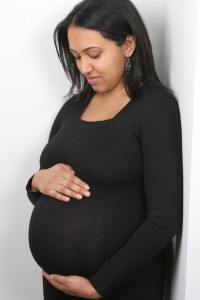Click here for more non-toxic tips from our Green Parent Guide
Tips to Avoid Toxic Chemicals Before, During, and After Pregnancy
Babies can be particularly vulnerable to toxic exposures during certain windows of development. Some of these windows occur very early on, before a woman even knows she is pregnant, many occur during pregnancy, and some occur after birth as the child grows. The good news is that mothers who take good care of their health by getting enough sleep, eating healthy, and exercising regularly can boost the body’s defenses against toxic chemical exposure that can otherwise be hard to control.
Increasingly, research indicates that unnecessary exposures to toxic chemicals in the home may be taking a toll on health of women and babies. Here are some simple tips for avoiding toxic chemicals before, during, and after your pregnancy to help give you and your baby a healthy advantage.
Make Your Own Cleaning Products
- It’s easy, fun, and cheap to make non-toxic cleaners from safe and effective ingredients like vinegar and baking soda. Find recipes here.
Avoid Synthetic Fragrance
- Shop for cleaners, laundry detergents, and personal care products labeled “fragrance-free” Warning: “Unscented” does not always mean fragrance-free!
- Don’t use air fresheners. Click here for tips to reduce odors around the home naturally.
Make Over Your Personal Care
- Read the label to avoid chemicals like parabens, sodium laureth sulfate, mercury (thimerosal), benzophenones and placenta.
- Check the Skin Deep database at www.cosmeticsdatabase.com to find safer products or see how yours measure up.
- Use fewer products, and use them less frequently to reduce exposures.
Go “BPA-Free”
- Ditch the canned foods and opt for fresh or frozen fruits and vegetables instead.
- Look for products packaged in glass or lined cardboard instead of cans.
- Don’t take paper receipts at ATMS, grocery stores, etc. unless you really need them.
Turn Down the Heat on Non-Stick Cookware
- Keep the stove at or below medium heat when using Teflon or non-stick cookware.
- Cook with cast iron or stainless steel pans when possible.
Avoid Exposure to Paint
- Let your partner or a friend paint the nursery.
- Make sure they use low or no VOC paint.
Pass on Pesticides
- When possible, eat organic food.
- Check out the Environmental Working Group’s Guide to Pesticides in Produce to find veggies and fruits that are low in pesticides (after all, not everyone can afford to buy organic all the time!)
- Don’t spray pesticides indoors, in the garden, or on pets.
- Control pests with baits and traps instead of pesticide sprays.
Skip Certain Beauty Services
- Beauty services like Brazilian Blowout (and other hair straightening treatments), hair coloring, and perms can release harmful chemicals.
- Check out WVE’s list of salon ingredients to avoid. Ask your stylist not to use products that contain these ingredients.
Minimize Household Dust
- Take off your shoes inside to avoid tracking in oils and chemicals from the street.
- Use a door mat to catch dirt at the door.
- Dust with a micro-fiber cloth or wet cloth and vacuum your house regularly (with a HEPA-filter vacuum if you can).
- Wash your hands with (triclosan-free) soap and water regularly throughout the day, and especially before you eat.
Help Change the World
- Join the Women’s Voices for the Earth community and sign up today for our email action alert list to hold corporations and the government accountable for the toxic chemicals that harm our health and communities.
- Throw a Green Momma Party with our Green Momma Party Guide, a how-to for detoxing your home in preparation for baby. Included in the guide are some inexpensive, DIY recipes to try out with friends!
- Friend us on Facebook, and follow us on Twitter and Pinterest for more helpful tips and ideas.



